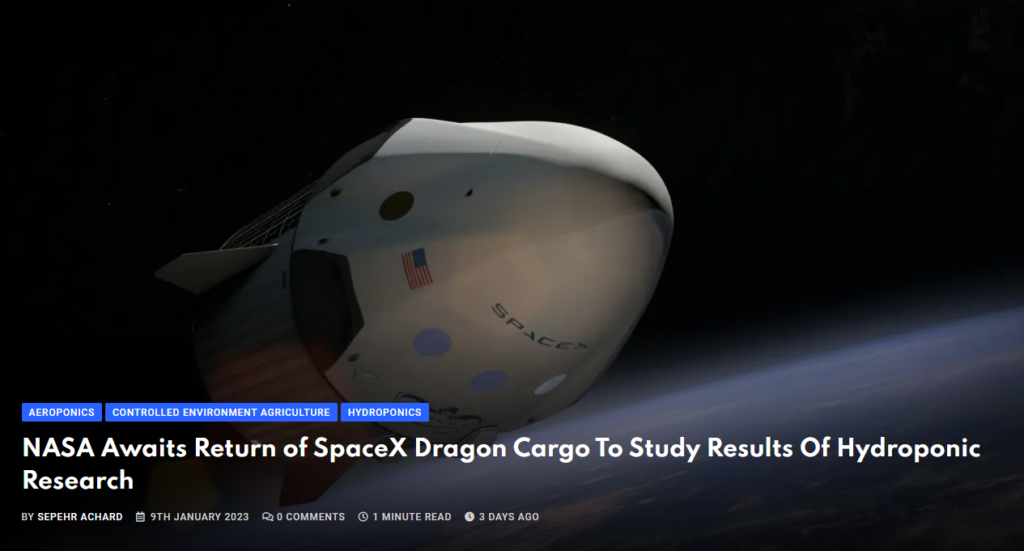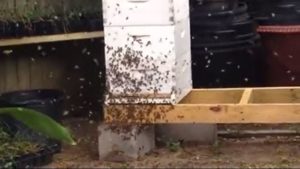On Monday, January 9, the SpaceX Dragon cargo resupply spacecraft set out for the International Space Station. A deep space radiation protection vest intended to shield astronauts from high radiation doses is one of the scientific investigations delivered. Hydroponic and aeroponic plant-growing techniques are also being investigated. This may aid in the development of crops for upcoming space missions.
Hydroponic and aeroponic plant-growing techniques are also being investigated. This is intended to guide plans for growing crops for the next space missions and improve farming and food security. Indeed, NASA reported in November that the next phase is in efforts to address the demand for a continuous fresh-food production system for working astronauts in space. The majority of food consumed by astronauts is prepackaged, and they are regularly restocked by resupply flights. Tests are now supported on the space station by a Vegetable Production System (Veggie). This space garden has so far been effective in growing lush greens while in orbit. The Pick-and-Eat Salad-Crop Productivity, Nutritional Value, and Acceptability to Supplement the International Space Station Food System (VEG-05) research’s objective was to further the precedent tests and grow crops such as tomatoes and other plants in their space garden.
A deep space radiation protection gear intended to shield astronauts from severe radiation doses brought on by erratic solar particle occurrences is one of the scientific studies delivered. To make changes for future Artemis trips to the Moon, developers will use data and astronaut feedback. Another study looked at “bioprospecting,” which is the process of finding plants and animals that could have compounds that might be used as medications or biochemicals. According to earlier research, space settings may result in genetic and physiological alterations that might potentially lead to bacteria-producing materials.



